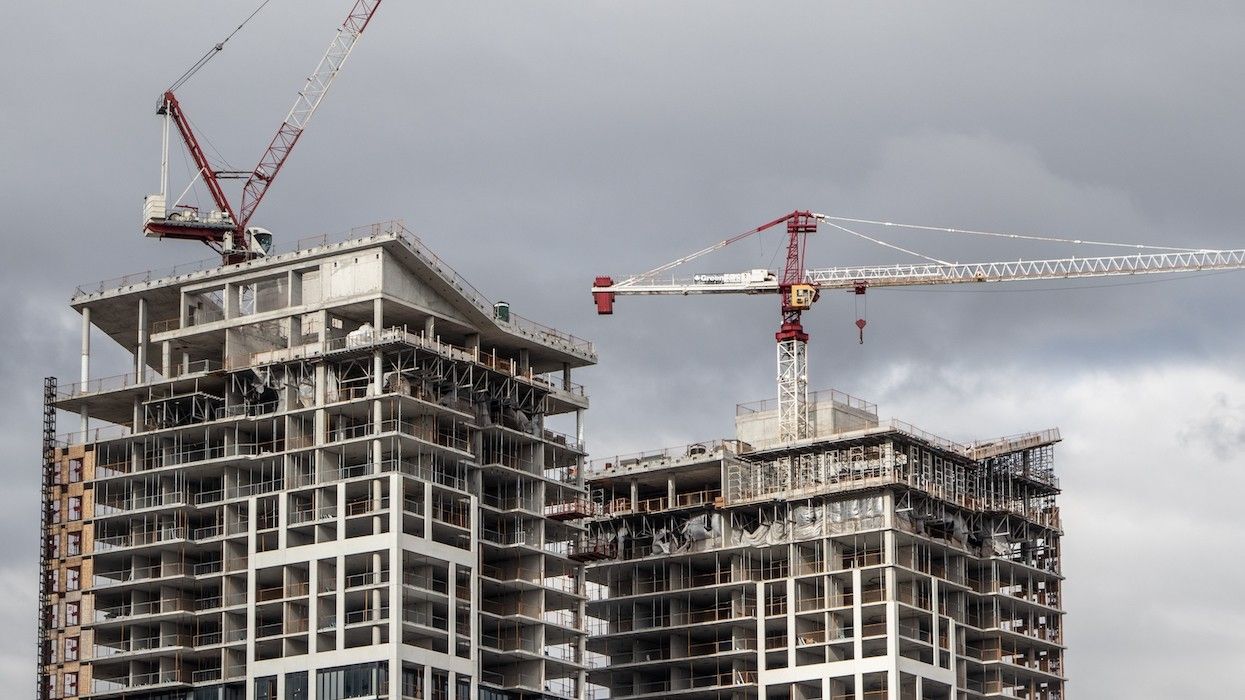This article was submitted by John DiMichele, CEO of the Toronto Regional Real Estate Board (TRREB).
York Region is home to some of the most desirable communities in Canada. But increasingly, this Region is facing a combination of challenges that pose significant risks to its residents and economic outlook, namely high home prices, falling housing starts, and some of the highest development charges (DCs) in the country.
Now is the time to consider a change of direction. Municipalities across York Region must reduce or defer DCs to help unlock the desperately needed housing supply and protect Ontario’s economic competitiveness. Through Bill 17, Protect Ontario by Building Faster and Smarter Act, 2025, the province is allowing the deferral of the collection of DCs for all residential projects as an incentive to get more shovels in the ground.
New home construction across the Region is falling short of provincial housing targets. Several municipalities face challenges meeting their annual housing goals to reach their 2031 targets. In particular, the Toronto Regional Real Estate Board (TRREB) is exploring opportunities to collaborate on specific housing policies that would assist municipalities like Markham, Richmond Hill, and Newmarket in meeting their long-term housing goals while supporting the financial needs of municipalities.
This failure to build isn’t just a housing crisis. It’s an economic crisis in the making. Ontario’s economy is facing heightened uncertainty, driven in part by rising protectionism and recent tariff threats from the U.S. administration. Our province cannot afford to sit idle while global trade pressures intensify. We need an all-hands-on-deck strategy to strengthen Ontario’s competitiveness, including building more homes, faster and more affordably.
When workers can’t afford to live near their jobs, businesses lose talent, productivity drops, and investment dollars flee. Employers are already warning that housing affordability is a barrier to attracting skilled workers, particularly in high-growth sectors like manufacturing and high-tech. If Ontario wants to win in a global economy, it must build communities where workers and their families can afford to live.
In York Region, municipal DCs, imposed by the Region and each local municipality, are a brake on the housing supply we need. Markham’s fees add up to over $170,000 on a single-detached home. In Richmond Hill, it’s $145,000, while in Newmarket it’s $140,000. DCs are costs added directly to the price of every new home built in the Region. They reduce the viability of rental and attainable housing projects while discouraging the creation of “missing middle” options like townhomes and low-rise apartments.
Decisions by other municipalities in Ontario to tackle high DCs reflect a growing consensus among municipal leaders that DC policies must evolve in tandem with housing supply obligations. For example, Vaughan, Mississauga, and Burlington have reduced their DCs to spur housing construction. Barrie is using its strong mayor powers to defer DCs and accelerate approvals. Most recently, Peel Region Council voted to reduce its DC rates by 50% until November 2026 to encourage housing development and make homes in Mississauga, Brampton, and Caledon more affordable. These are not careless decisions. Instead, they are strategic moves to align local fee structures with long-term housing and economic goals.
It’s time for York Region municipalities to do the same.
We acknowledge the June 12, 2025, decision by the York Region Committee of the Whole to endorse a new first-time buyer DC-equivalent rebate for newly built homes valued at $1 million or less, contingent upon receipt of new funding from higher levels of government to fully offset those costs. This is in addition to several other changes focused on DC deferrals to stimulate new housing development in the Region. If adopted by York Region Council, these policies will align with the deferral requirements of Bill 17 and support the federal government’s efforts to lower overall DC rates, thereby improving affordability and increasing supply.
TRREB is urging York and all municipal councils across the Region to take immediate action to pause or reduce planned DC increases, defer collection of DCs until occupancy to align with Bill 17 requirements and explore targeted exemptions for affordable and rental housing. Solving the housing challenges requires a coordinated effort from all levels of government. TRREB is calling on the provincial and federal governments to step up and provide municipalities with stable funding to support the construction of the right type of housing supply. These measures won’t just help families looking for a place to live; they’ll help strengthen our economy when Ontario needs every competitive edge.
Premier Doug Ford has taken important steps to increase housing supply and counter trade threats. But local governments must do their part, too. DCs are shaping where and whether homes are built and who can afford to live in them.
Let’s not let outdated policies choke our economic potential. The path to a stronger, more resilient Ontario starts with building more homes for workers, families, and individuals — and that begins by reducing the government fees that stand in the way.




















